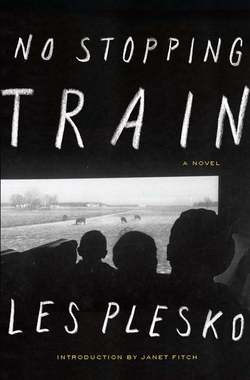Читать книгу No Stopping Train - Les Plesko - Страница 12
На сайте Литреса книга снята с продажи.
ОглавлениеLetters I don’t send:
Dear Sandor, I better remember for us how it was.
You weren’t the first. That was a soldier for candles and bread. In the cellar by buckets of piss, I made myself ready for him. Then there was a boy who wrote slogans with chalk across walls, my name beside his, an arrow pierced through a heart. In an atlas stolen from school, we’d try to find countries the war hadn’t touched.
If I’d told you about him, which I did not, I don’t think you would have been unkind. It would have been hard to excuse jealousy of the dead.
That was the year they sent the first boys to the front. Everyone trying to save us from bullets and bombs with more bullets and bombs, Alma said. She said it was irony that fell from the sky, all that generously meted death. It was difficult mourning just one boy with everyone mourning along.
But you’d probably already killed by then.
Your ironical uniform, the sarcastic smile of the crease in your uniform’s slacks. The sly, knowing blood on your shirt, your torn epaulet’s winking eye.
Then we were suddenly half-dressed in your room with its window’s iron bars. You told me about your mother who put up preserves the day she got taken away. Your father the printer who had principles so they broke both his hands. The six-story window in prison left open on purpose for him. But I wasn’t listening well, swooney with your printer’s ink smell, already telling myself what I’d save up for now. Hoarding how you kissed my eyes.
“Make me believe this is worth it,” I said. I was very dramatic back then, with my hand to my brow, all serious, moony-eyed.
Jesus, Sandor, make me stop. Instead let me tell how rain etches the train window’s glass. How it’s raining again in this town, its sky’s wet bruise spun from low dirty clouds. The first people here gathered fruits, hunted mammoths, reindeer. They swallowed horse flesh, drank mare’s milk. Now women haul twigs tied with twine across damp plundered fields, a slow recitation of picking through hoofprint-caked mud. The washroom’s tap leaks, its drip burns my cold fingertips.
I used to assume certitude. Alma in her robe, father at his desk. I was the daughter playing somewhere in the house, in the yard, sometimes too far, but the chestnut vendor brought me back. Our supper was coffee that year, lumps of sugar dissolving to brown the same shade as the city at dusk. My father’s slicked hair was Budapest’s color back then. The three of us stood in the street, he chewed his charcoal pills. “History’s ruined my stomach,” he said. I could see he was telling the truth, the proof was his tongue and black teeth. My bicycle, tipped on its side in the gutter, was red. My father kept wiping his eyes. Cold wind blew through my dress, already faded though he only brought it the previous month, its seams loose, its bow lost. “Cheap like everything else,” Alma said, her hair stirred by wind, not bothering to comb it away from her face. I studied her shoes, scuffed and wet. Seeing her out of the house made me anxious and tired. Sweat stains spread under her arms though she must have been cold and embarrassed in only her robe, exposed to whoever might pass. She fingered its hem as if it might turn to ash, her bare arms goosefleshed. Rain pelted her uncovered head. Her breath came in ragged white puffs. She said, “Don’t leave me here with the child,” words like stones, bitten lipped. She took a step back, ankles weak, on the verge of a slip.
I looked up at our window opened out so the war might fly in. I said, “Are we going to die?”
Sandor, we did die.
What happened once? It had the look of nothing. A storm, a light rain, the war came. My father left for the front, he said when I come back, he meant if.
In the city the woman who I had become wiped marzipan glaze from her mouth. She picked her teeth with her nails while you practiced your forgeries, already inventing your fate.
My hands that touch the train’s glass: I’m just like my mother now, tired of my feet and my hands, my own cheap sentiment.
So here is my hand where my wedding band also leaves its white mark. I never did feel safe wearing it. My thin shift with its cigarette burn in its lap from when we both fell asleep after love, then you woke me up, said, “You were on fire but I put you out.”
I’ve been moving toward you or away since back then, my hands held in front of my face as if trying to hold back the wind, scraps of newspapers blowing by fast.
